With job openings reducing and a youth unemployment rate that is increasing, the competition among young South Korean job seekers is getting more and more fierce.
Years after having graduated from university, many young Koreans find themselves not only without a job, but also without qualifications to even be considered. As a result, many young job seekers suffer from depression, even leading to cases of people ending their lives.
It’s not getting any easier. In 2021, young job seekers have to deal not only with job shortages, but also with coronavirus outbreaks.
In this article, we will let you know of the current status of young job seekers in South Korea. What do they do to increase their chances to land a job? And what kind of salary can they expect if they finally pull through and secure an employment?
Youth Unemployment In South Korea Today
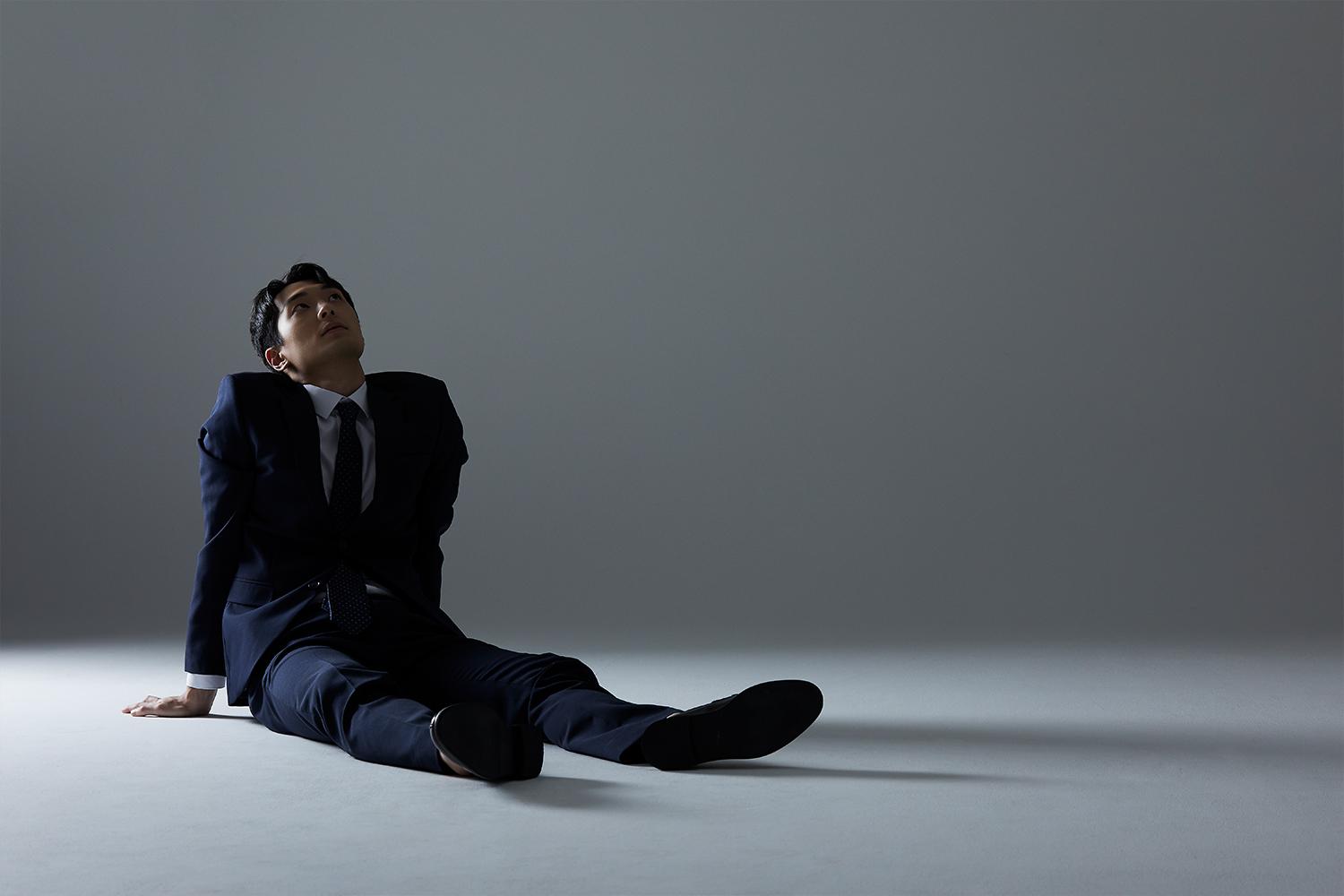
I’m beginning to understand why job seekers commit suicide.
This was the title of a blog posted on an online community in December 2020.
In the blog, the author put words to the harsh reality of trying to find a job in South Korea.
The author described how several years of applying to job openings had been in vain. He would get rejected at the resume screening stage, not even getting to go to job interviews. This led to him losing confidence, and eventually he even began to avoid meeting other people.
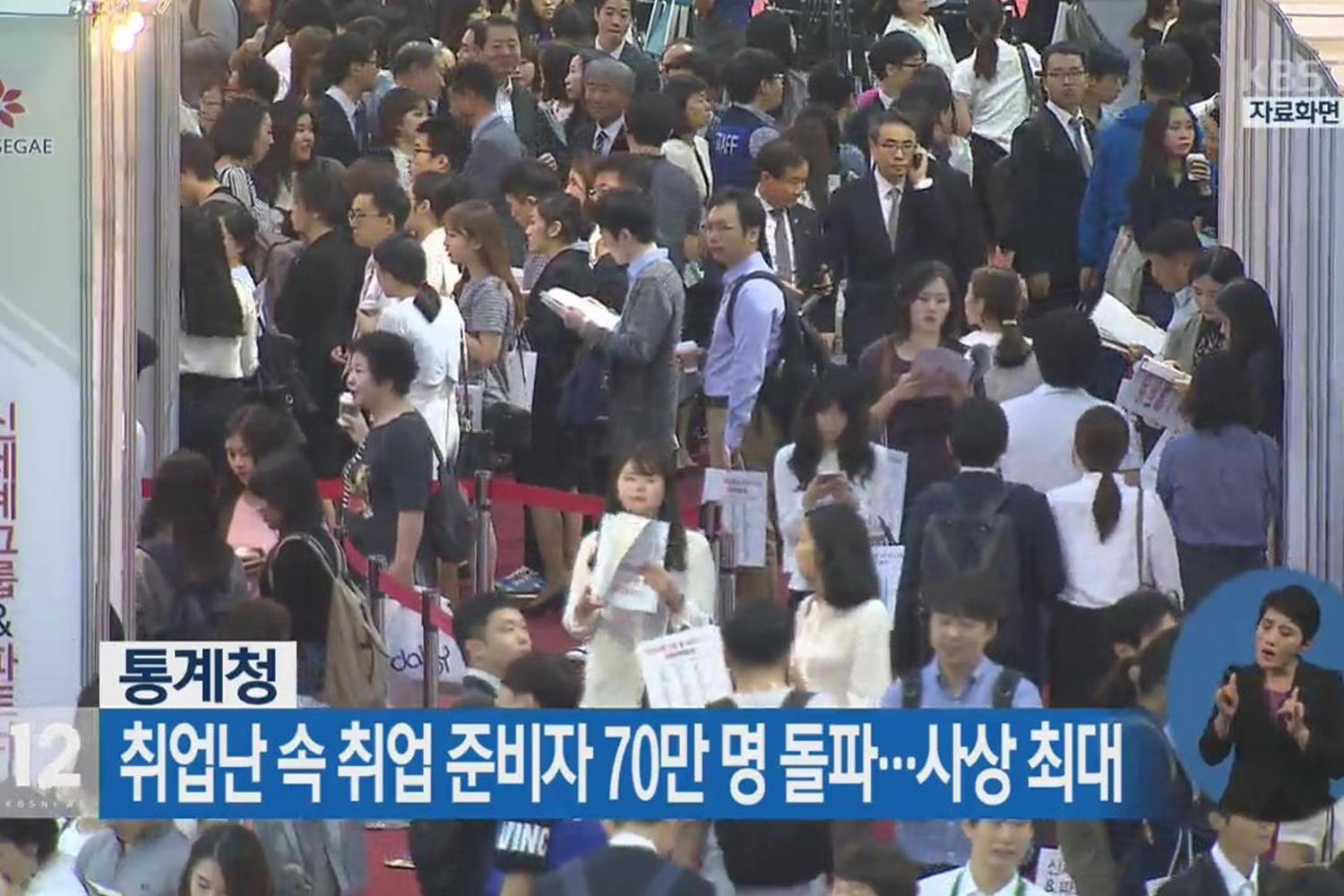 News that there are currently 700,000 Koreans actively seeking a job
News that there are currently 700,000 Koreans actively seeking a job
Although efforts have been made both on government and corporate level to improve the employment situation in South Korea, it seems like not enough consideration has been paid to the situation of young job seekers.
Many young Koreans are suffering from intense stress and fatigue due to this lack of support.
In fact, 9 out of 10 Korean job seekers say that they suffer from excessive stress as a result of the job seeking process. This can lead to depression and other disorders, and in some cases even suicide.
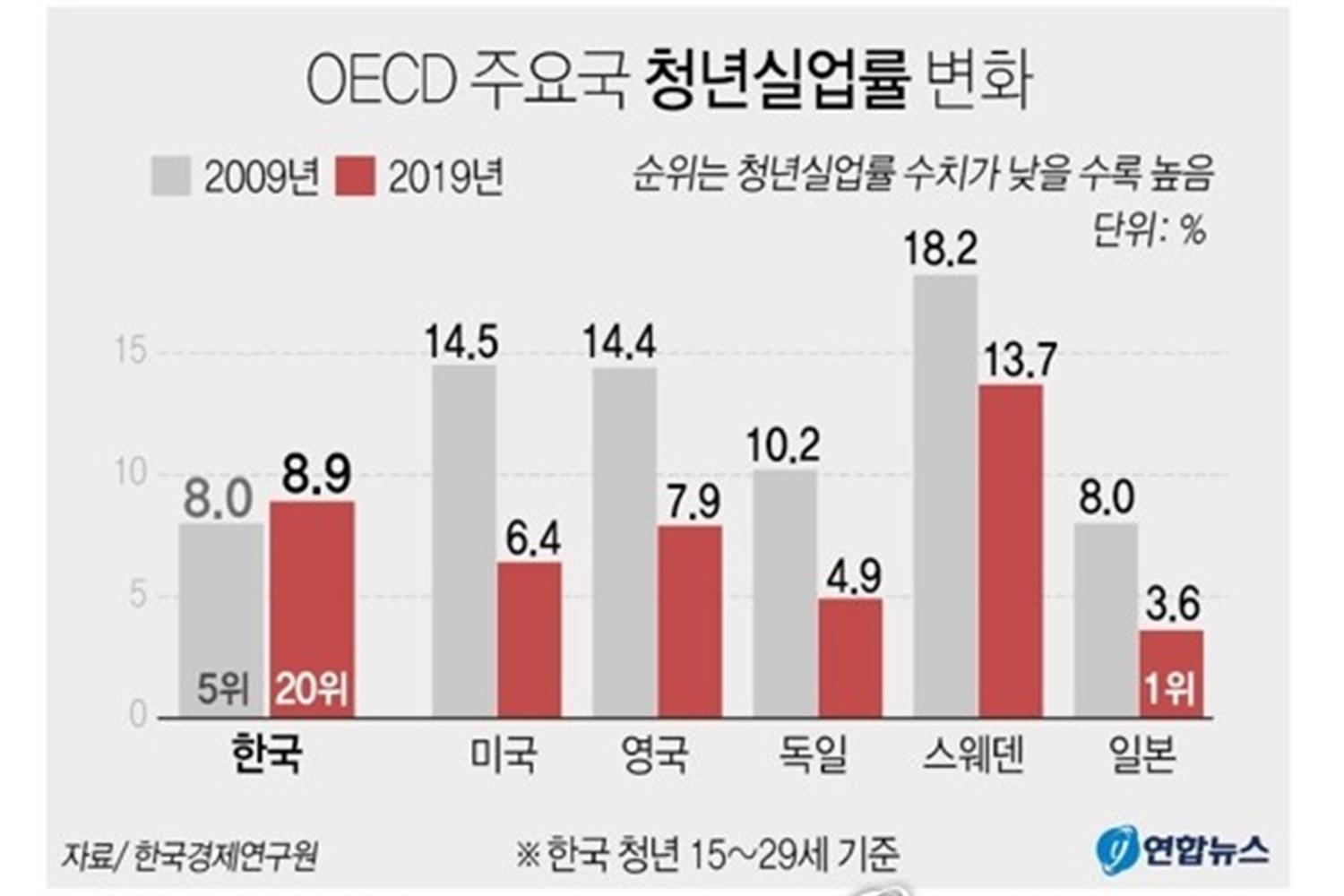
The youth unemployment rate in South Korea in 2020 was 8.9%.
A 2020 survey of OECD countries showed that the unemployment trend among young was particularly alarming in South Korea.
According to Korea Economic Research Institute's analysis of youth employment in OECD countries between 2009 to 2019, the youth unemployment rate (ages 15 to 29) decreased by 4.4 percentage points on average in the OECD, while the rate in Korea increased by 0.9% percentage points.
Among countries with a declining youth employment rate were the US with a 8.1 percentage point decrease (14.5%→6.4%), the UK with 6.5 (14.4%→7.9%), Germany with 5.3 (10.2%→4.9%), Sweden with 4.5 (18.2%→13.7%) , and Japan with a 4.4 percentage point decrease (8.0%→3.6%), all contrasting with the increase that South Korea showed.
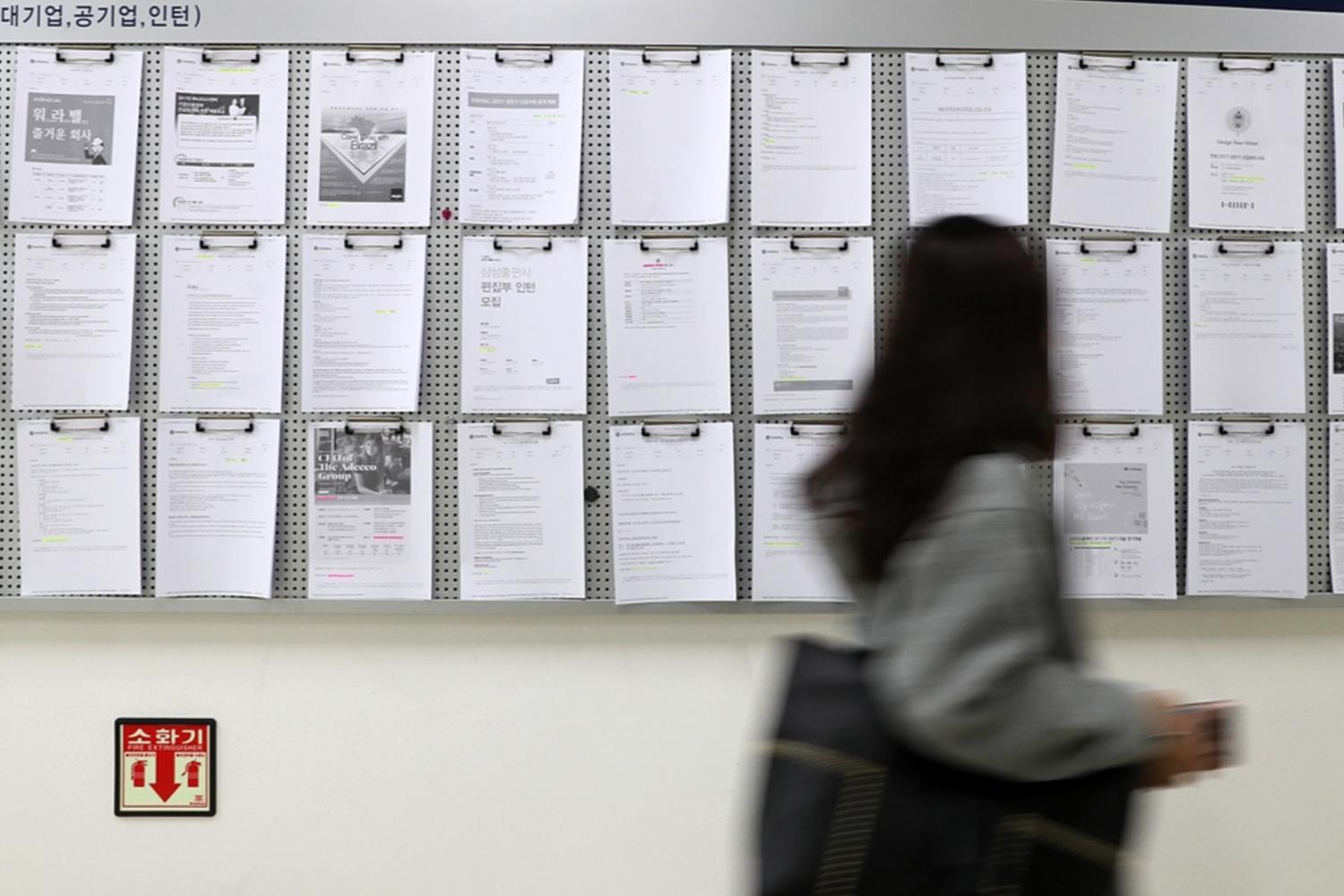
Among the 37 OECD countries, only six countries showed an increase in youth unemployment during the ten year period. The only countries that saw a larger increase that South Korea were Greece and Italy, which both experienced financial crises during the time.
South Korea’s youth employment numbers placed 5th out of 37 OECD countries in 2009, which was seen as a good result. However, in 2019, the country fell 15 places to 20th place, and was pushed below the average.
Looking at the numbers, the current issue of youth unemployment feels even greater than before.
The Country Of University Graduates

These days, over 70% of young South Koreans will graduate university.
Since most Koreans start university straight after graduating high school, it means that most Korean women start job hunting when they are around 23 or 24 years old. Korean men, the large majority having to do their military service, look to land a job at around 26 or 27 years of age.
Most university students hope to start their job career directly after graduating from university. In Korean, landing an employment immediately after graduation is called 칼취업 (kal-chuieop), literally translating to, "knife employment".
The ideal scenario for those graduating university by February 2021 is to have had an employment secured by end of 2020. Such a feat would be celebrated and respected by peers.
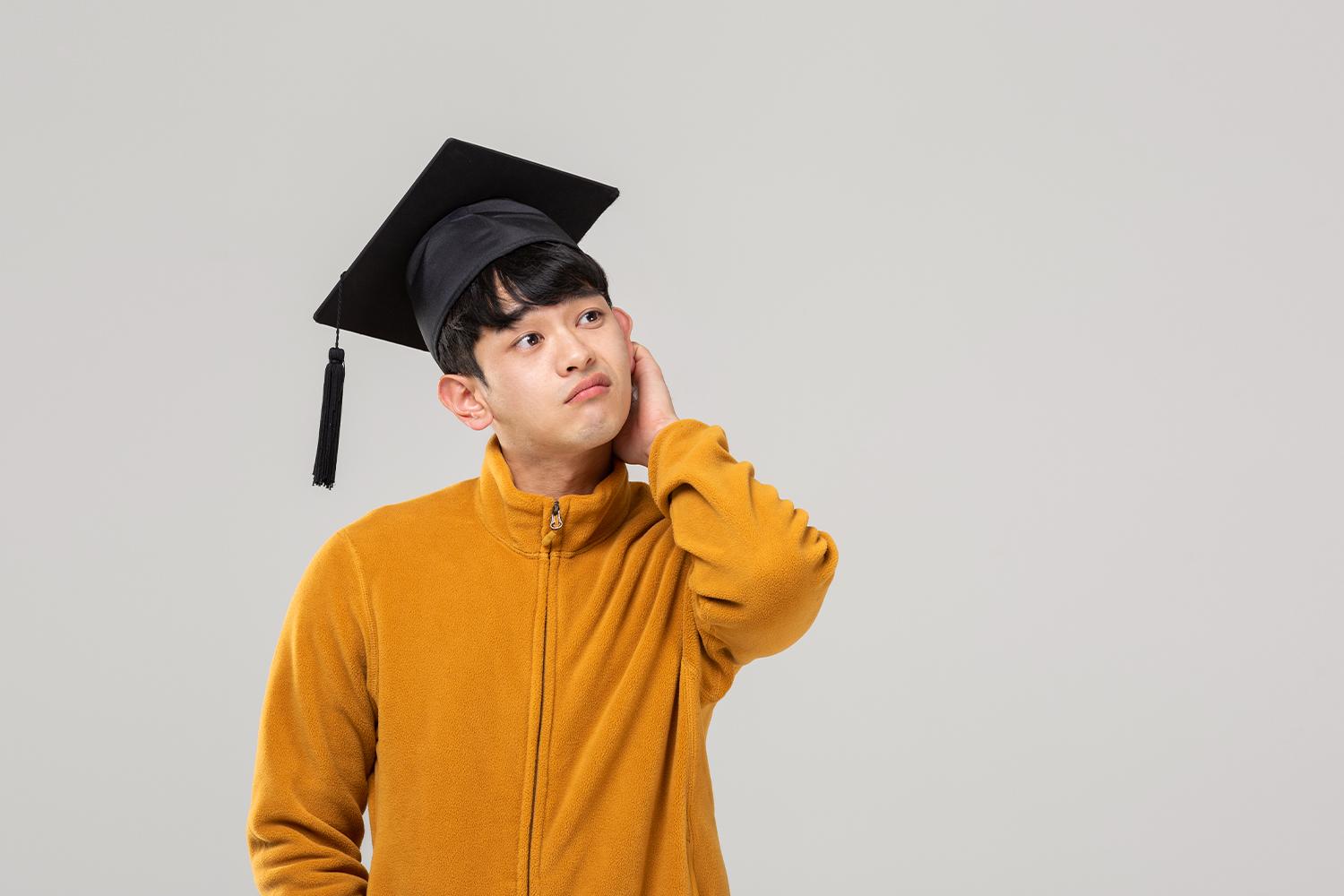
As it is seen as ideal to get a job as soon as you graduate, many young South Koreans will postpone their graduation if necessary.
It is a known fact that most Korean companies prefer enrolled students to college graduates.
This is because companies believe that those with a gap from graduation to job interview might have lost their competitive edge.
As a result, many students who have yet to secure a job will apply for permission to prolong their graduation. If they can’t, they have to prepare for interview questions about what they were doing during the gap after they graduated.
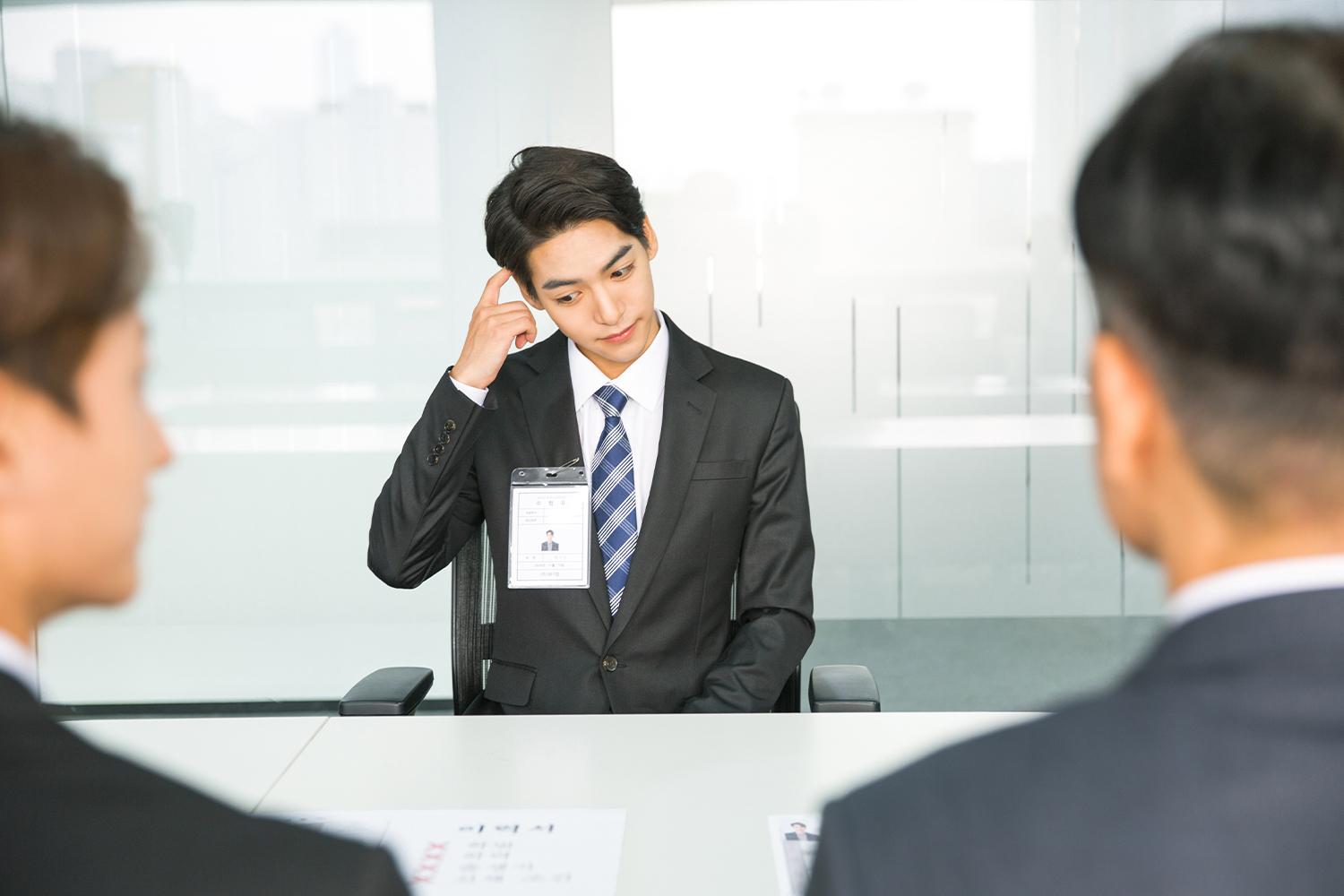
And there is another reason for students trying to land an employment immediately after graduation. This is because there is an implicit age limit for new recruits.
This age limit is usually said to be around 30 for men and 28 for women. Therefore, South Koreans also have to consider their age when deciding their career path.
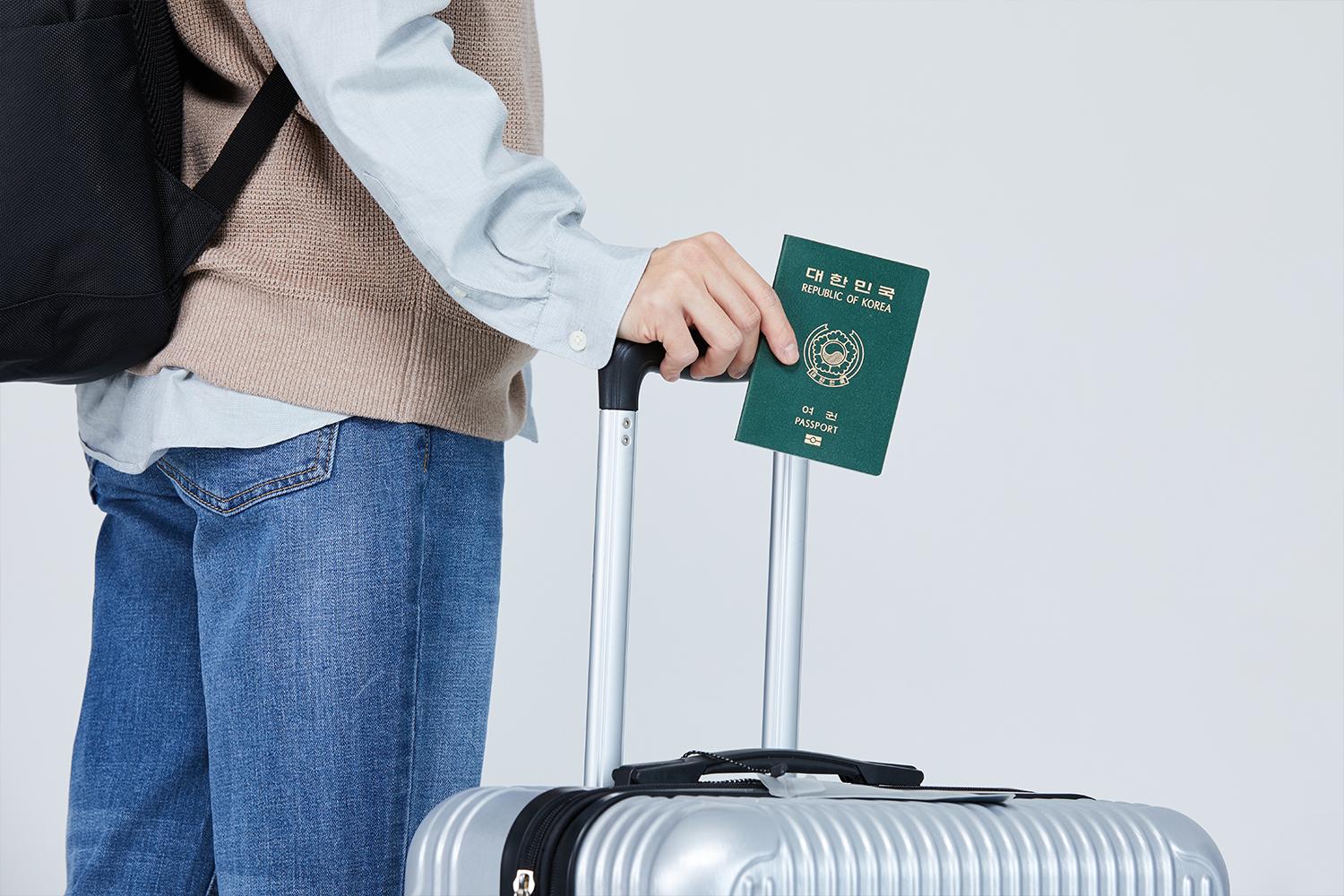
For example, if a student choose to go abroad for exchange studies, he or she would end up graduation a year later than others. Many see this as a risk rather than an opportunity.
The fear is that being a year older than others when applying for jobs could put them at a disadvantage.
As a result of this mindset, many young South Koreans are constantly concerned about not losing any ground compared to their peers, and will avoid engaging in other activities when they are job seeking.

Employment Competition
Just how fierce is the competition for jobs in South Korea?
A survey conducted by the job search platform Saramin, studying job openings from 177 companies during the second half of 2020, said that the average competition rate for new hires last year was 36 to 1.
This is just the average, and the competition will increase for positions at well-known mid-sized and large corporations.

In 2019, Shilla Stay posted a job opening for the management support team of a newly opened hotel.
In just ten days, a staggering 1,500 applicants send their resumes.
To apply for the position, you were required to have graduated from university. Graduates from both Korean and foreign universities applied for the position.
An official at Shilla Stay commented that they had received an overwhelming number of applications, and that it made them realize the severity of youth unemployment.
It is also common that the competition rate for graduate positions at large corporations exceeds 100:1.

More than 10,000 job seekers applied to SK Innovation when they announced the hiring of 100 people.
6,500 job seekers applied to an open recruitment by Kolmar Korea where 60 positions were offered.
The competition for positions at public companies, considered stable jobs, is even more fierce.
A total of 11,597 applicants sent their resumes to KOSPO, which offered 84 intern positions for university graduates.
The competition rate of Korea Gas Safety Corporation’s open recruitment of management and accountants reached 236.5 to 1.
The numbers tell us that the competition is especially tight for management and sales jobs which target liberal arts and social sciences graduates.
However, the situation is not much better for other jobs.
According to a survey by Job Korea, new recruits applied for an average of eight job offerings on their homepage in the second half of 2020.
However, they would only pass the resume screening stage for an average of two openings.
Field | Screening Stage: Applications/Succeeded Attempts |
| Total | 7.8/1.8 |
Science and Engineering | 8.0/1.6 |
Art and Humanities | 7.6/1.7 |
| Business Administration | 9.8/1.7 |
Social Science | 7.1/2.2 |
Natural Science | 7.8/2.2 |
| Art, Music and Physical Education | 6.9/1.3 |
Job Korea
More Detailed “Spec”

With job offerings decreasing and competition increasing, job seekers are focusing on strengthening their resumes in order to increase their competitiveness.
In Korean, such qualifications are called “spec”, short for “specifications”.
Let’s have a look at the “spec” for a job seeker of today and the past.
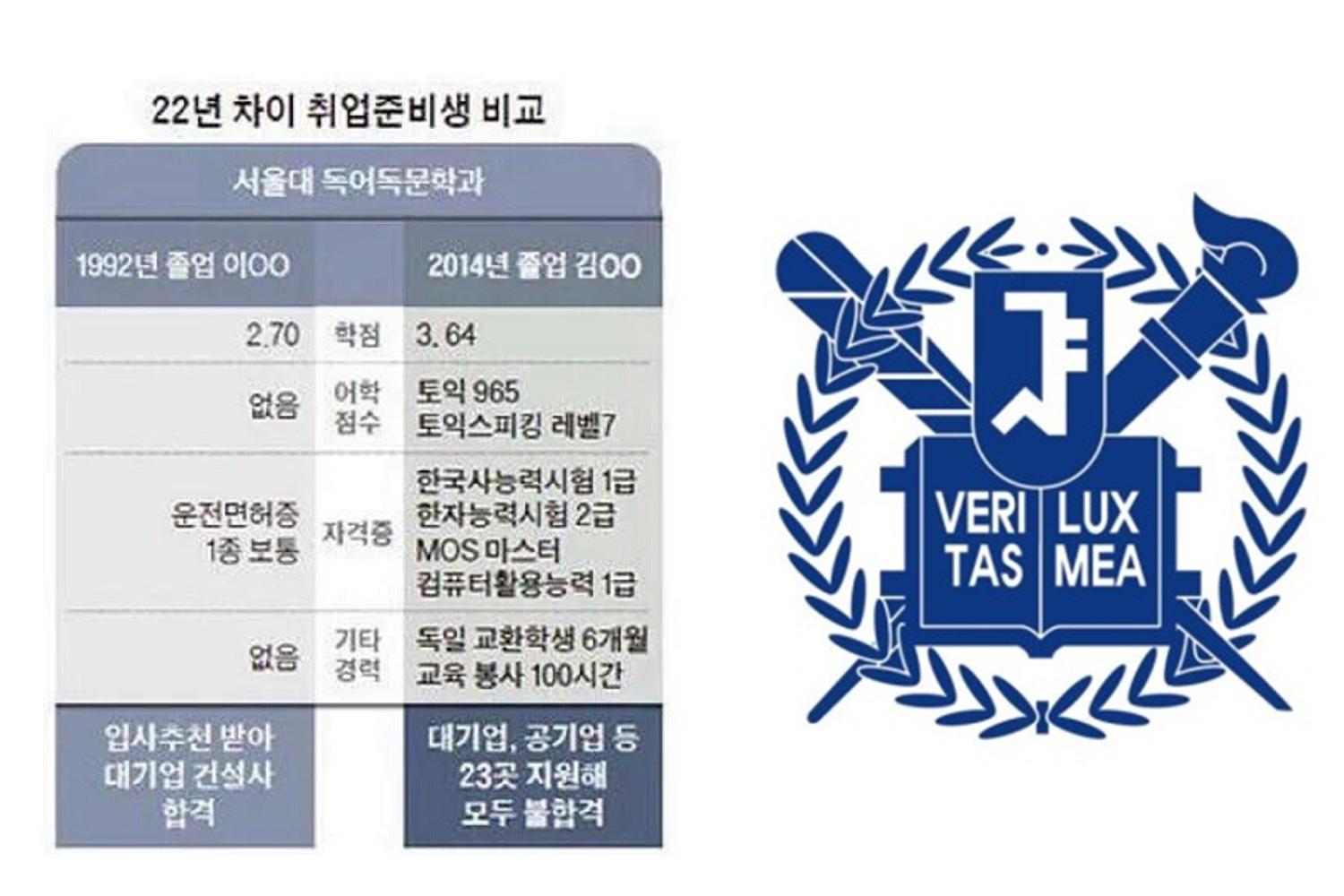
The picture above compares two students who graduated from the Department of German Language and Literature at Seoul National University, one graduating in 1992 and one in 2014.
The anonymous 1992 graduate student had relatively low gpa of 2.7, and hadn’t passed any language proficiency test.
The graduate from 2014, however, finished with an average score of 3.64, and had passed the languages test TOEIC with 965 points, as well as passing TOEIC Speaking Level 7.
The pattern is the same for other qualifications. The graduate of 1992 only had a driver's license to put as other qualifications.
On the other hand, the 2014 graduate could list qualifications such as Korean History Proficiency Test, Chinese Character Proficiency Test, MOS (Microsoft Office Specialist) master and computer literacy certificate, in addition to 100 hours of volunteering for German exchange students.
Which student then had more difficulties finding a job?
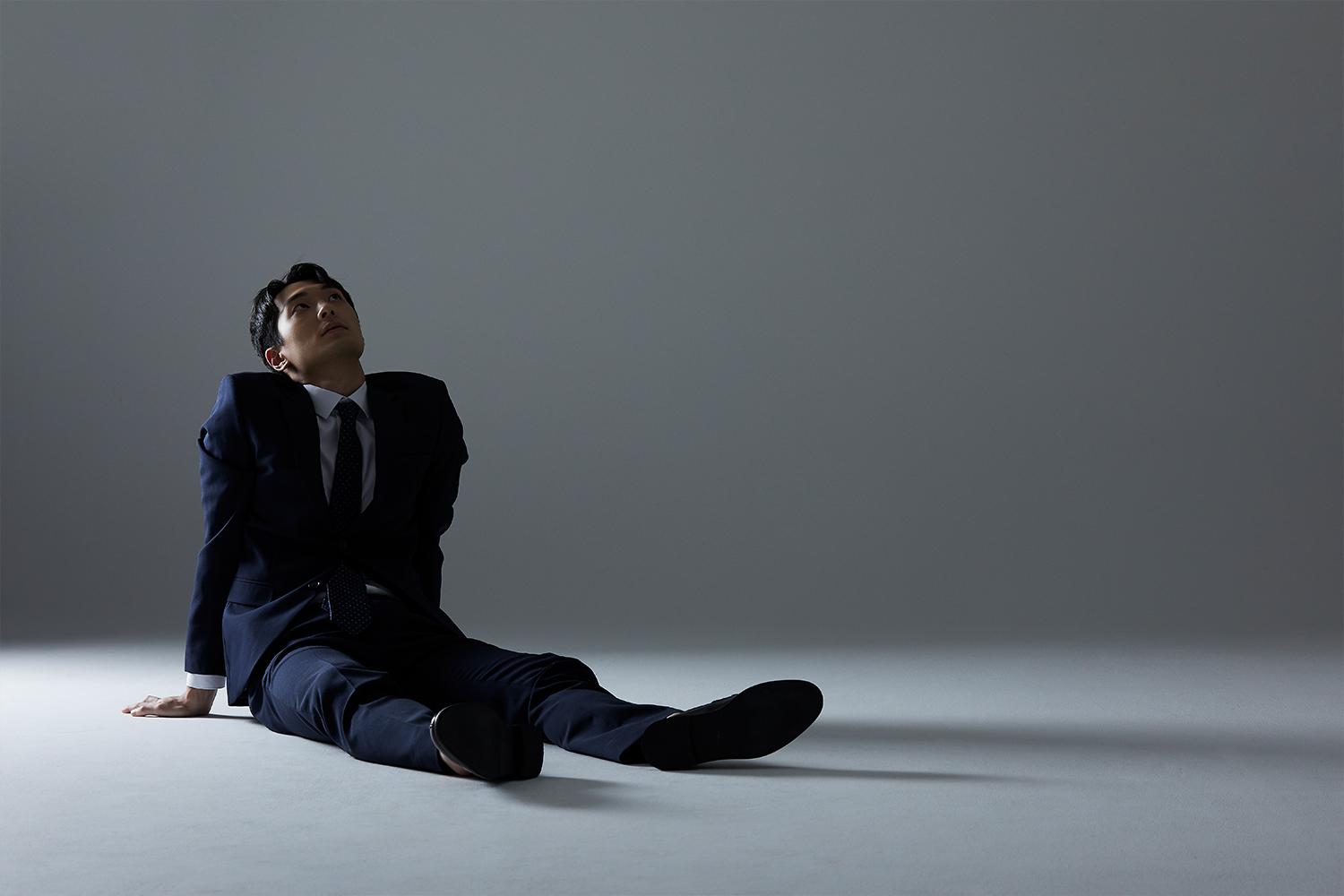
It turns out that the student graduating in 1992 was quickly hired by a construction company after receiving a recommendation.
In contrast, the student who graduated in 2014 applied to 23 companies, including large corporations and public corporations, but failed to find employment.
As time and society change, it is only natural that more will be required of job seekers. Even so, the difference is huge when we look at these two students, who graduated the same school and the same class, only 20 years apart.
Students entering university in 2021 will be busy trying not only managing their credits, but also needing to accumulate various qualifications, including languages, computer license, internship as well as finding suitable part-time jobs.
 LG U+ and Lotte asking university students to sign up as ”supporters”
LG U+ and Lotte asking university students to sign up as ”supporters”
Students put much effort into improving their so called “spec sheet”, often having a certain field or even a certain company in mind as they build up their resumes.
Many will volunteer to work for companies as “supporters”, helping companies that they wish to enter in the future with promotion and other, or they might even manage to land an internship.
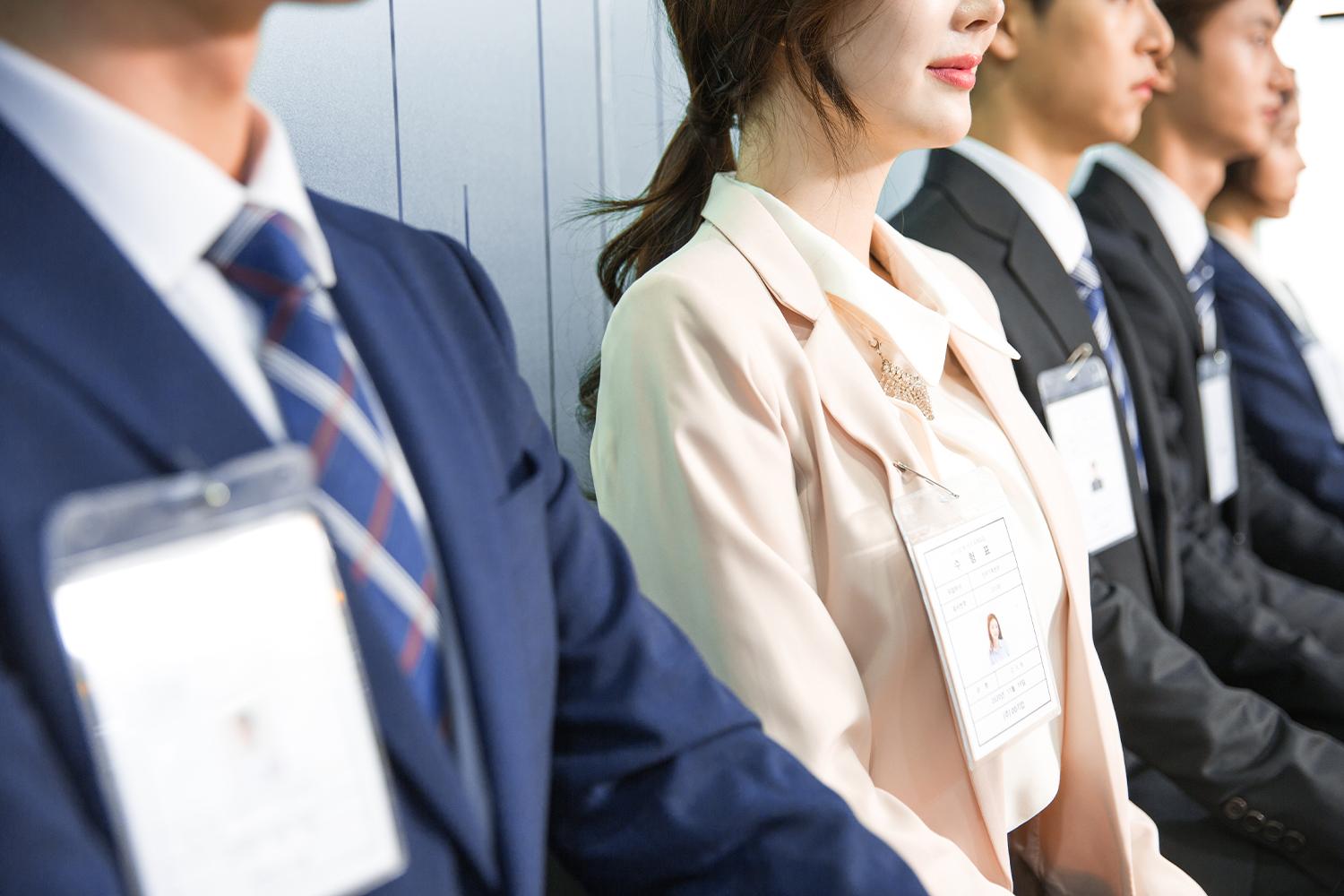
Applicant Resumes: Who Gets Hired?
We now know that the competition is tight. So, what kind of resumes do people who manage to get hired by major corporations have?
We examined resumes of applicants who manage to land one of these highly-desired jobs. Although there were some individual differences, indeed they are all full of qualifications.
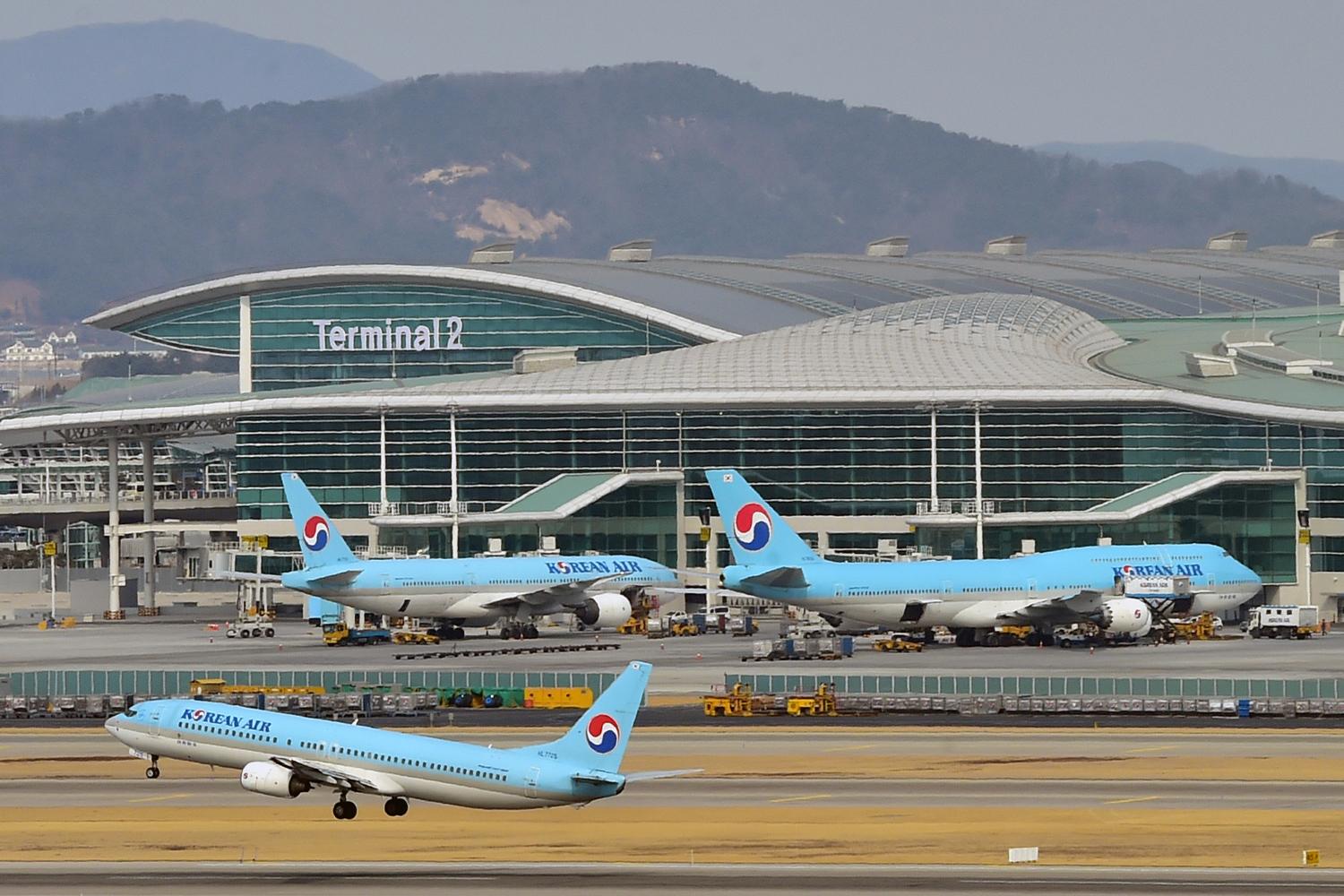
1. Airport Engineer
(Science and Engineering)
Language Skills: TOEIC score 940 points
Activities: patent holder, thesis having won prize from Microsoft
Intership: none
Qualifications: Computer Specialist in Spreadsheet and Database, electrical engineering certificate.
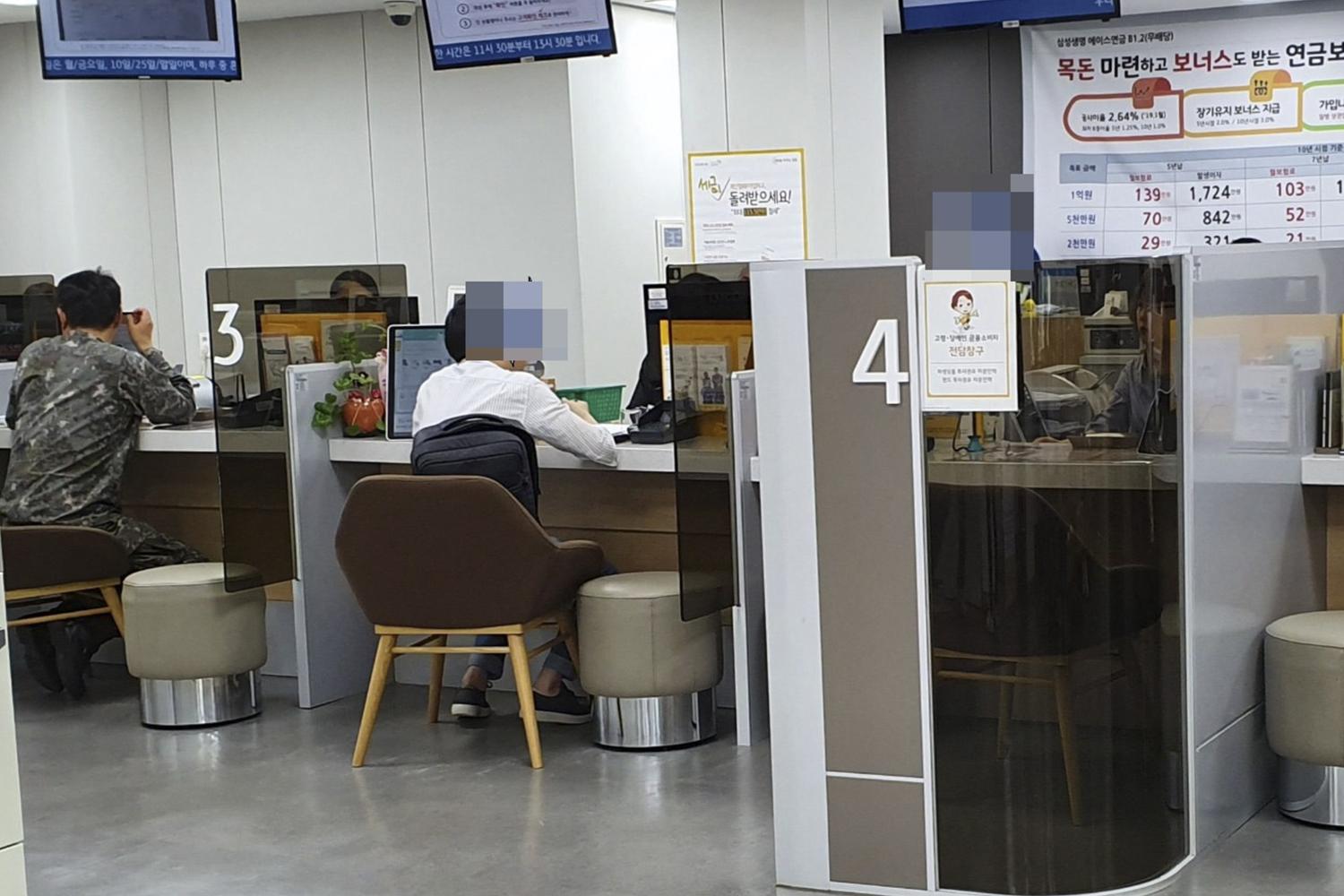
2. Bank Clerk
(Business and Economic Affairs)
Language Skills: TOEIC score 855 points
Activities: Samsung student reporter, Hyundai E&C supporter, volunteer work for business conferences, volunteer work in Vietnam, exchange studies in the Netherlands
Internship: Internship at both common and development bank
Qualifications: MOS certificate, Credit Analyst certificate

3. Electronics Company
(Science and Engineering)
Language Skills: TOEIC score 860, TOEIC Speaking Level 6
Activities: member of Go club, job-related training, mentor volunteering, working part time at restaurant for 3 years
Internship: none
Starting Salary

In this article, we have looked at the prolonged employment crisis in South Korea.
So what will your starting salary look like if you finally manage to land a job?

The annual starting salary for a four-year university graduate in 2020 was 41.3 million won for conglomerates, 38.1 million won for publicly owned enterprises, and 28 million won for small and medium-sized companies.
This means that the starting salary for jobs in publicly owned companies was 92% of the salary that conglomerates could offer. The starting salary for those getting employed by SMEs averaged only 68% that of large corporation employees.
The numbers are almost identical to last year, the only difference being the starting salary for positions in small and medium-sized enterprises, which increased by 0.4%
👉 Average Salaries In Korea 2021
👉 50 Highest Paying Jobs In Korea
With those numbers, we wrap up this article about youth employment in South Korea.

